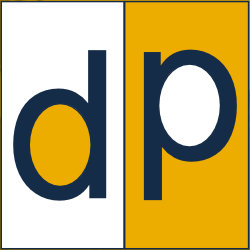Carbon Marine - Streamlining Fabrication
Simplifying each step from design to production
Digital patterning closes the automation gap between design and production of composite products. The transition to digital is a mandatory part of any cycle time or fabrication cost reduction strategy. The team at Carbon Marine decided that now was the time to make the transition to digital.
In many cases, the carbon fiber hull manufacturing process starts with a 3D scan of the Plug. Scanning quickly captures the details making the design available for downstream automation.
“With our old process it took 6 to 8 months to deliver a boat.” Said Drew Davidson, Production Manager at Carbon Marine. “For the last project we did before moving to ExactFlat, I think we started in March and didn't really finish until sometime in November. It was quite a long process and there were 5 or 6 guys working on the boat. We just can’t afford to put that kind of time and man hours into each project, and with ExactFlat we don’t have to.”
Going directly from Patterning to Cutting
ExactFlat converts the 3D scan data into a Finite Element Mesh model, ready for Flattening.
The biggest time and cost saving came from automating the patterning process. The old process required Davidson and his team to spend weeks or months planning, cutting, fit testing and re-working the pieces. With ExactFlat they now have a faster, and simpler five-step path from CAD to Cutting:
Open the design file and select the surfaces for cutting.
Prepare the surfaces for flattening.
Convert the CAD model into a Finite Element Mesh
Cut or merge surfaces into 3D pieces
Generate Offset surfaces to represent various ply layers
Assign material properties and the fiber orientation for each ply
Flatten and Optimize the plys to eliminate strain and sag/wrinkles.
Create documentation (i.e. drawings, ply books) and cut files.
Cut with confidence.
In the next step the model is projected into ply layers. Material properties and fiber direction are assigned for each ply and the 3D model is flattened into 2D pieces in minutes. Strain and sag displays help validate fit before any material is cut.
“We were a little surprised by how quickly we went from design specs to pattern drawings and ply books.” said Davidson. “And with how accurate the patterns were. We basically were able to simulate and verify production for the entire project before we did any cutting. That’s the game changer.”
In the final pre-production step all of the documentation, including assembly instructions and ply books are generated directly from the digital patterns. This saves time and further helps to eliminate errors and rework.
Freeing up time to explore other improvements
By adopting digital patterning with ExactFlat, Carbon Marine found time to look in other areas for additional process and cost improvements. According to Drew, “Faster patterning is just the starting point for us. We now have time to look at everything from alternative materials and adhesives, to different sanding and polishing techniques, to what our paint process is going to be. We’re finding all kinds of ways to save time and money and it’s mainly because we’re spending less time fussing with the patterns.”
Increasing Profitability and Competitive Advantage
By using ExactFlat with their existing design data, composite product manufacturers are creating better, more accurate patterns much faster than they did in the past. And the resulting digital data is cutter-ready, requiring little or no changes to the final production steps.
Learn how to close the automation gaps and dramatically reduce your production cycles. Click on the links below and set up a time to speak with one of our experts.











